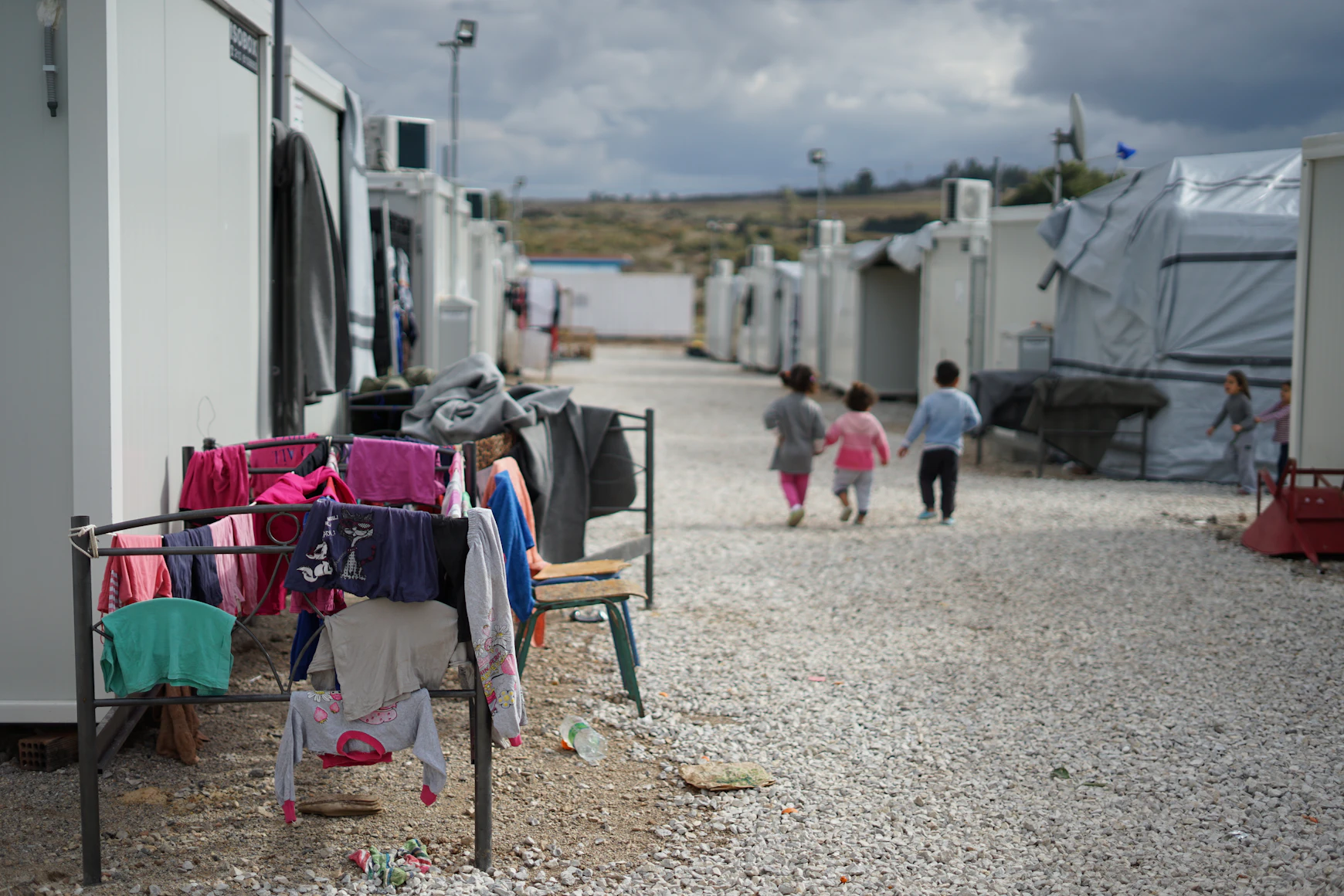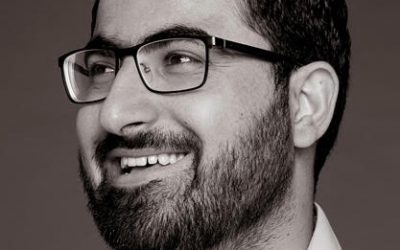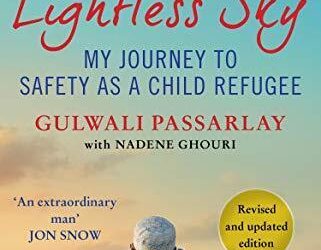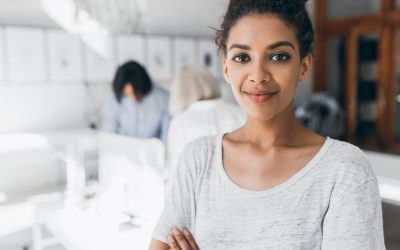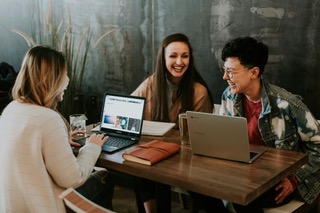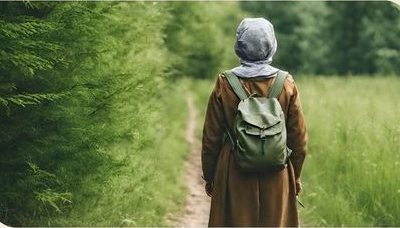Explore the inspiring story of Aliya Abidi, a protector of refugees, transforming their lives through education and empowerment.
A love of exploring and learning about different countries, cultures and languages forged through a deep sense of curiosity ignited Aliya Abidi’s journey in refugee support and protection. It encouraged her to study for her bachelor’s degree in Linguistics, ultimately leading to her working overseas. Her interest in specific regions, such as Lebanon and Palestinian refugees in Lebanon, led her to visit the country. Gaining an understanding of the refugee situation and the needs of refugees in that country was the catalyst that brought her to where she is now and her impactful role in supporting refugees. She continued her studies, undertaking two master’s degrees, the latest from the University of London, in Refugee Protection and Forced Migration Studies.
Working as a TEFL (Teaching English as a Foreign Language) teacher reaffirmed her opinion on the importance of education for refugees, particularly children in refugee camps deprived of formal education. According to the UN Refugee Organisation, there are nearly 15 million school-aged refugee children globally. With cultural differences, limited resources and other forms of barriers facing these children, more than 50% of them are without any form of formal education and “the chance at a brighter future”.
Aliya’s empathy with migrants and refugees began within her family environment. On both of her parents’ sides, there is a history of migration, adapting to a new country, and developing a blend of cultures representing historical and present connections. As Aliya explained, through different generations of her family, the concept of moving around was considered normal, and today, she recognises the benefits of her parents’ migration through the quality of life it gave her generation. However, she also realised that the migrant experience incurred by her family was not the case for everyone. She saw that the journey for many forced to leave their home can be very different, with challenges and barriers at every step of the way. This knowledge became one of the driving factors in her commitment to support those travellers.
Aliya acts as a Protection Co-ordinator, working internationally in areas of great need, managing a team focusing on ensuring the fulfilment of refugees’ rights. When a person becomes displaced due to a natural disaster, persecution, or conflict, they often find themselves unable to uphold their civil rights. Whatever the crisis, individuals may find themselves separated from family, without their necessary civil documents or financial support, making it difficult to access even the most basic human rights. Under the auspices of either one or all of the rights afforded by International Law, the European Refugee Convention and the UDHR, Aliya and her team become advocates, providing information and support to those in need. When people become exiled, in a camp or internally displaced, they are vulnerable to exploitation and violation of their rights; Aliya’s team provide support in monitoring the situation, implementing educational programmes to prevent such violations, and increasing awareness of the risks’ refugees face and the rights they are entitled to, whatever their status. Her team also provide group educational programmes for child protection or the prevention of gender-based violence so that a community can learn how to protect themselves. Aliya also places importance on implementing programmes that encourage children to return to school.
One of their critical programmes is the provision of Safe Spaces. The Safe Space for Women and Girls programme provides security in one area where protecting the vulnerable is paramount. Women form the majority of refugees and asylum seekers. There are 6.7 million people displaced within Syria alone and more than 18,000 registered refugees and asylum seekers in the country. Nearly 70% of them are women and children. According to the WomenForWomen organisation, women and young girls face marginalisation, along with sexual and gender-based violence, with one in five experiencing sexual violence. In addition, the poverty and lack of education or proper protection systems within camps often result in child marriage and human trafficking. Implementing this programme provides a physical, social, and emotional safe space for women to share their experiences and learn how to look after themselves and their family. Aliya told us of a situation where a grandmother had attended a session focusing on the risks of early marriage. The information connected so much with her that when she went home, the grandmother had an informed discussion with her family. As a result, her granddaughter did not have to face the harrowing experience of early marriage; rather, she could continue with her schooling and remain a child rather than a wife.
When people are displaced, they lose their community, their family and friends’ network, and ultimately their emotional support mechanism. In the TogetherintheUK anthology, Hear Our Stories, a consistent theme through all the different pieces was the sense of loss of community and the desire to find a new community where they would feel safe. The Safe Space programme, as well as being a source of information, also offers women and girls that community spirit, with many regularly returning to chat with other women in a safe place, engage in day-to-day conversation, share emotional burdens, and have that support network that helps all of us survive and develop. For Aliya, the location, the format, and the context of the Safe Space is very much driven by the needs and wishes of the women for whom it is intended. It is not formulaic – instead, it is a developing educational and social community meeting the different needs of the female population.
What Aliya and her team, and indeed so many other organisations and individuals, do daily for refugees is impressive. Still, she reminded me that each of us can make a difference in the lives of refugees and migrants. The first step is to reframe the negative narrative and, rather than look at what makes us different, find what we have in common, share moments of humanity, and build bridges. It could be a simple greeting or a smile, as one of the writers, Ajicja Pyszka-Franceschini wrote in Hear Our Stories; “She woke me up with her gratitude for conversation: “Thank you for talking to me” she said to me.” Vulnerabilities. As Aliya says, we can build momentum through a small movement to make a positive change.
Aliya is supporting an Instagram account @birdsofgaza, which is a community art project for children to craft a unique handmade bird representing the life of each child killed in Gaza during the current conflict.
For a deeper understanding of migrant lives and their stories in the UK, go to TogetherintheUK.
To immerse yourself in the rich anthology of migrant writing compiled by TogetherintheUK, purchase a copy of Hear Our Stories, from Support Us.
Photo by Julie Ricard on Unsplash

